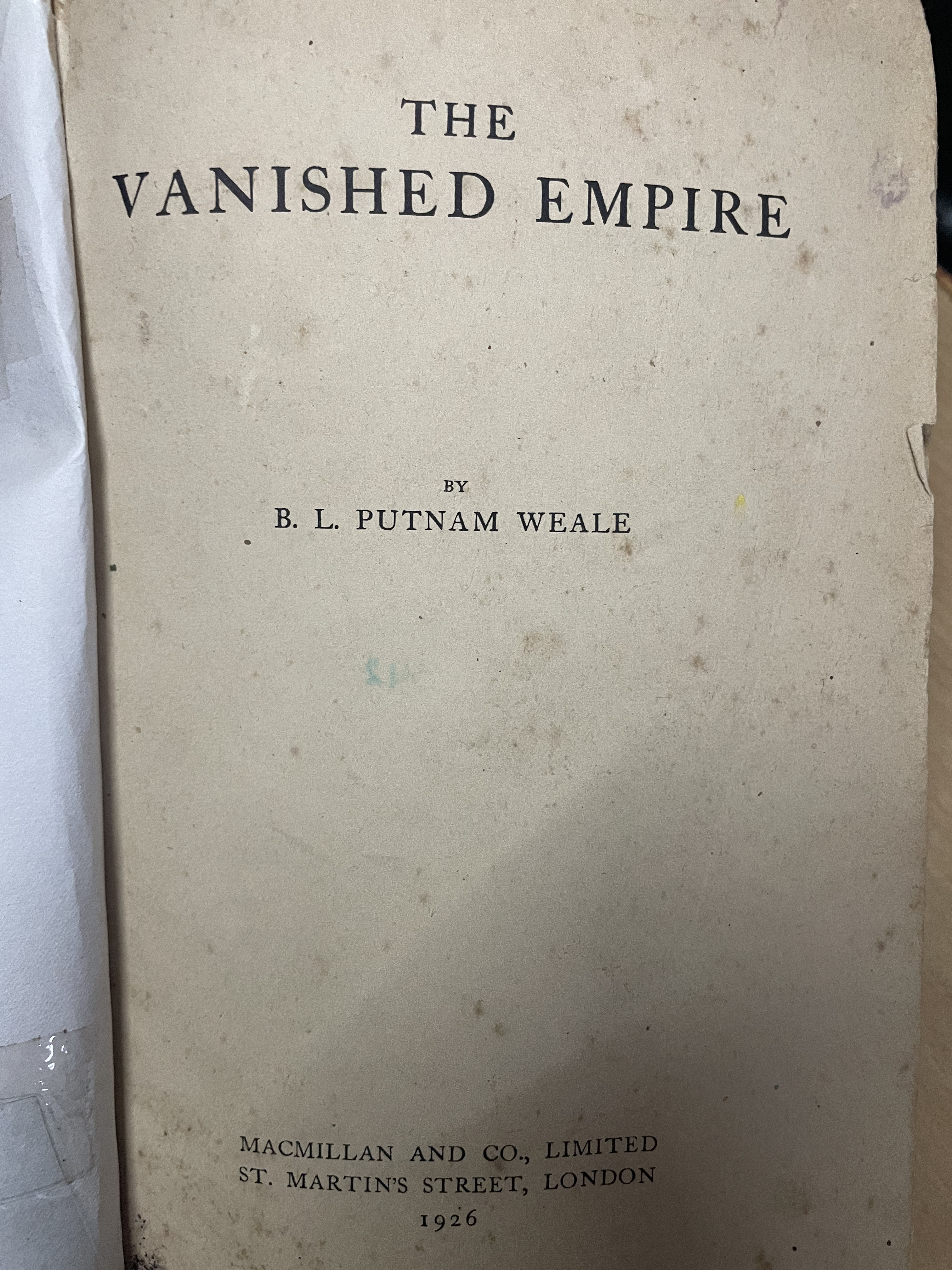The Vanished Empire

About
Summary
Exquisite
TOC
Details
Related
URL
Images
Overview
The Vanished Empire" by B.L. Putnam Weale provides a "comprehensive analysis of the dramatic transition from Tsarist Russia to Soviet Russia. The search results also refer to other works with the title "Vanished Empire," including a film about youth in 1970s Moscow, and a novel about the Mound Builders but these are not relevant to the specific query about Weale's book.
The Vanished Empire by B.L. Putnam Weale likely offers a detailed account of the political, social, and cultural upheavals that transformed Tsarist Russia into Soviet Russia.Given the book's title, Weale likely emphasizes the sense of loss and disruption that accompanied the collapse of the Tsarist regime. He may explore the nostalgia for the old order among certain segments of the population, as well as the challenges and uncertainties of building a new society based on communist principles.
Importance of Book
Comprehensive Historical Analysis: The book provides a comprehensive analysis of a pivotal period in Russian history, offering insights into the complex factors that led to the downfall of the Tsarist regime and the rise of the Soviet state.
Understanding the Russian Revolution: It helps readers understand the causes, events, and consequences of the Russian Revolution, one of the most transformative events of the 20th century.
Insights into Political and Social Upheaval: The book offers valuable insights into the dynamics of political and social upheaval, demonstrating how revolutions can arise from a combination of long-term structural factors and short-term triggers.
Historical Context for Understanding Modern Russia: It provides essential historical context for understanding the development of modern Russia, including its political system, its economic structure, and its relationship with the rest of the world.
Key Themes
The Fragility of Empires: The book underscores the fragility of empires, demonstrating how even seemingly powerful regimes can collapse under the weight of internal contradictions and external pressures.
The Consequences of Social Inequality: It highlights the consequences of social inequality, showing how vast disparities in wealth and power can lead to widespread discontent and revolution.
The Role of War in Revolution: The book emphasizes the role of war in accelerating revolutionary processes, demonstrating how military defeats and economic hardship can undermine the authority of governments and create opportunities for radical change.
The Ideological and Practical Challenges of Revolution: It explores the ideological and practical challenges of revolution, examining the difficulties of translating revolutionary ideals into concrete policies and building a new society from the ruins of the old.
The Impact of Revolution on Individuals and Society: The book explores the impact of revolution on individuals and society, as it is an evocative moment that succeeds in both making it clear and vivid while showing that it is gone forever.
Cultural Significance
Historical Understanding: The book promotes historical understanding by examining the causes and consequences of the Russian Revolution.
Reflection on Political Power: The book encourages reflection on issues of political power, social justice, and the role of individuals in shaping history.
Warning about Ideological Extremism: It serves as a warning about the dangers of ideological extremism and the importance of pragmatism and moderation in political life.
Understanding the Soviet Dream: It offers retrospective feelings that convey the reason for the focal character's shortcomings as having "seen through the Soviet dream.
Effects on Society
Informing Public Opinion: The book would have informed public opinion about the Russian Revolution, shaping perceptions of the events and their significance.
Influencing Political Discourse: It may have influenced political discourse, providing arguments and evidence for different interpretations of the revolution.
Contributing to Historical Memory: The book contributes to the historical memory of the Russian Revolution, helping to ensure that the events and lessons of this period are not forgotten.
Encouraging Reflection on Social and Political Issues: It encourages reflection on fundamental social and political issues, such as the nature of power, the causes of inequality, and the challenges of building a just society.
Conclusion
The Vanished Empire by B.L. Putnam Weale is a comprehensive analysis of the dramatic transition from Tsarist Russia to Soviet Russia. The book's importance lies in its thorough examination of the political, social, and cultural factors that led to the Russian Revolution. The key themes include the fragility of empires, the consequences of social inequality, the role of war in revolution, and the challenges of building a new society. Its cultural significance stems from its promotion of historical understanding, its encouragement of reflection on political power, and its warning about the dangers of ideological extremism. The book likely had a lasting effect on country and society, informing public opinion, influencing political discourse, contributing to historical memory, and encouraging reflection on fundamental social and political issues.
Title
The Vanished Empire
Author
B L Putnam Weale
Name of Publisher
Macmillan and Company London
Publish Date
1926
Subject
The Russian Empire and the rise of the Soviet Union
Vintage
1901-1947
Number of Pages
368
Category
History
Sub Category
Social Sciences
Rarity
RARE
